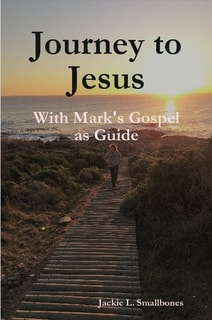|
Prepare to Listen. Let those who are wise give heed to these things.
Prayerfully Read Psalm 107:33-43 33He turns rivers into a desert, springs of water into thirsty ground, 34a fruitful land into a salty waste, because of the wickedness of its inhabitants. 35He turns a desert into pools of water, a parched land into springs of water. 36And there he lets the hungry live, and they establish a town to live in; 37they sow fields, and plant vineyards, and get a fruitful yield. 38By his blessing they multiply greatly, and he does not let their cattle decrease. 39When they are diminished and brought low through oppression, trouble, and sorrow, 40he pours contempt on princes and makes them wander in trackless wastes; 41but he raises up the needy out of distress, and makes their families like flocks. 42The upright see it and are glad; and all wickedness stops its mouth. 43Let those who are wise give heed to these things and consider the steadfast love of the LORD. Prayerfully Wonder and Reflect A psalm of thanksgiving for deliverance ends with: “Let those who are wise give heed to these things.” What do you think this suggests about what it means to be wise? The stories of the redeemed have been told (vv. 4-32), but the psalmist isn’t done. She believes it’s important to “consider the steadfast love of the LORD.” Consider, give all your attention to God’s steadfast love. This Hebrew term, hesed describes the essential character of God as well as God’s characteristic way of acting. It’s a favorite term in the Psalter, used over 120 times, more than the rest of Bible put together. “Hesed is both who the Lord is and what the Lord does.”[1] It can be defined as “a free-flowing love that knows no bounds,”[2] which is evident in the stories of the redeemed in Psalm 107. In these verses, the psalmist focuses on God’s sovereign power to provide for the needy, those needing food and shelter. The God who can turn a river into a parched desert can also turn “a desert into pools of water,” where the hungry will not merely survive, but thrive. God will not tolerate any who try to diminish others “through oppression, trouble, and sorrow.” The oppressors, most often the rulers, will end up in the “trackless wastes” God redeemed these story tellers from. The point the psalmist makes is this: it is God, not humans, who gives the means to thrive. The upright, those loyal to God, will see this and be glad. Let those who are wise give heed, consider, remain focused on the steadfast love, hesed of the LORD. Where have you seen and/or experienced for yourself the steadfast love of the Lord? Prayerfully Respond Lord, please remind me today to remember to pay attention to your steadfast love that never fails and may I reflect this love to the those around me. Amen. Live obediently. Consider God’s steadfast love. [1] Nancy deClaissé-Walford N., Jacobson R, and Tanner, B. The Book of Psalms. Grand Rapids, MI: William B. Eerdmans Publishing Company. 2014, p. 8. [2] Ibid, p. 405. Being a word rich in meaning, hesed can be translated in many ways in English.
0 Comments
Leave a Reply. |
AuthorWrite something about yourself. No need to be fancy, just an overview. Archives
March 2024
Categories |
- Home
- LIVE THE STORY
- Read Your Bible
- Spiritual Practices
-
Sacred Sagas
- Smallbones Saga 2022
- You just need to be thirsty
- Can these bones live?
- Power the Jesus' Way
- Response to Jan 6
- Binding the Strong Man
- Come, everything is ready
- Help my Unbelief (Mk 9:14-29)
- Off with your shoes
- Psalms and prayer
- Praying in Ugly Times
- The Messiah we Want
- Why I can't vote for Trump
- Worship & Discipleship
- About Me
- Contact
Books Available |
RETREAT OPTIONS |
Let the redeemed of the LORD tell their STORY
(Psalm 107:2 (TNIV)) © 2016 LiveIntoBeauty. All Rights Reserved.
|

 RSS Feed
RSS Feed



